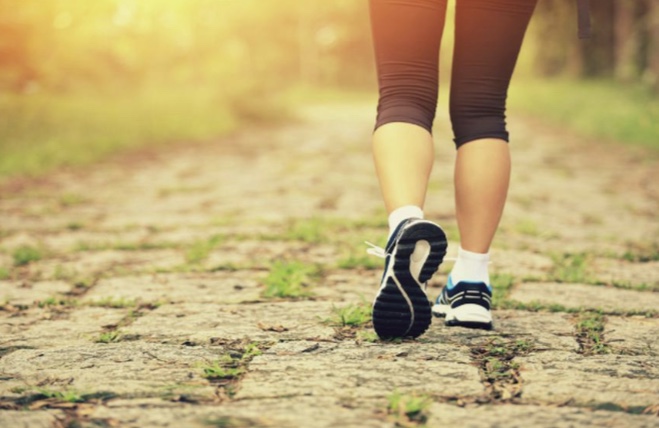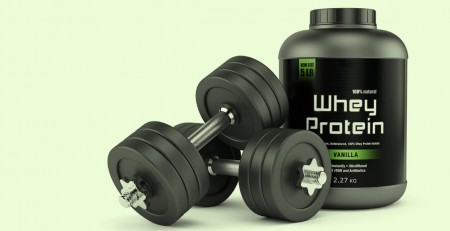The Safest Slimming Exercise In The World!
Walking Is The Safest Exercise For All Ages!
Today millions of people all over the world are obese and most of them are struggling to lose weight by either starving under various treatments or working out heavily till they are badly injured.
We have known for a long time that cardiovascular exercises lower your weight, blood pressure, blood sugar, cholesterol, low-density lipid cholesterol or LDL cholesterol, and triglycerides.
They also raise your good high-density lipid cholesterol or HDL cholesterol.
Experts say that regular strength training exercises also help lower blood pressure and sugar.
But in high-intensity strength training exercises, especially if people hold their breaths when straining to lift heavy weights, and people naturally do that, there could be a sudden spike in their blood pressures, which could sometimes even be fatal!
And that is the reason why experts recommend higher repetitions with lower weights than fewer repetitions with heavyweights.
And they also recommend that people with uncontrolled hypertension should be cautious while lifting heavyweights.
Doing strength training exercises without a well-trained instructor most often leads to injuries than lowering blood pressure and sugar.
And for that, you have to visit gyms regularly.
But strength training lifelong in gyms is not possible for most Indians.
And injuries are common in gym-goers in India.
Also let us compare the calories burned in walking, strength training and floor exercises.
Walking can burn between 250 to 350, even 400 calories if truly brisk, strength training 180 to 250 calories and floor exercises 120 to 180 calories per hour.
And we can easily walk for one, one and half or two hours spread over the day, at our convenience.
You can hardly do more than an hour of strength training or floor exercises, and those too not without breaks, so the real time actually comes down below one hour.
Most people under my care walk 8 to 10 km or more, daily, effortlessly once they get fit!
These people tend to burn 400 to 500 calories daily and lose weight happily while getting fit and healthy.
Gaining a little extra muscle weight due to strength training helps improve metabolism and helps us burn a few extra calories day long, but still they are not on par with what you can burn in cardiovascular exercises.
And average gym goer who spares an hour or an hour and half in a gym daily, is hardly expected to gain more than a kg or two of muscles over a period of months , ladies even less than men.
The best exercise for almost everyone, of all ages, in most circumstances, is walking!
You don’t need any trainers or specialized equipment, or to visit gyms to walk.
And it is good enough to not only lose weight effectively but also to get optimally healthy!
All you need is proper clothes and appropriate walking shoes. And the desire and motivation to walk!
And you don’t need special training or technique to walk.
All you need is to wear good walking shoes and begin to walk!
US Government guidelines recommend 150 minutes of ‘moderate’ exercise or 75 minutes of vigorous exercise each week. Walking 100 steps a minute constitutes moderate exercise while 130 steps a minute constitutes vigorous exercise. In terms of distance covered per hour, 4.4 km/hour constitutes moderate exercise while 5.7 km/hour constitutes vigorous exercise.
Researchers have found that most people walk at over a hundred steps per minute when asked to walk at their comfortable pace, that is they already walk at a moderate pace. So taking them a step ahead at a time, to 110, 120, and 130 steps per minute is not very difficult.
So the best plan is to begin walking regularly at your normal, comfortable pace and time and increase pace and time as you get fitter. In fact, your speed and distance increase automatically as your fitness improves!
Here is a note of caution, when you walk at 120 or 130 steps per minute, you are likely to suffer from knee pain, if the muscles around the knees are not strong enough. That is the reason why you ought to take up knee strengthening exercises along with your walks.
If you are very unfit, even walking on the spot at home (like marching) for as little as five minutes at a time is good enough. Do it twice a day, morning and evening, and add one session of five minutes both times of the day every few days, as you get fitter and stronger. Gradually build it up to thirty minutes in the morning and thirty in the evening, either at home or outside. You gather pace as you get more and more fit. And it all happens naturally, you don’t have to do it intentionally.
Your energy levels and mood improve within days, and you start enjoying walking. You look healthier and your skin starts glowing with the newfound health.
If you are already walking, walk for thirty to forty-five minutes twice a day consistently, it gives you a better metabolic rate than walking once a day.
You can also use a motorized treadmill for walking.
Walking lowers your bad, low-density lipid (LDL) cholesterol, which leads to heart disease, increases your good, high-density lipid (HDL) cholesterol, which helps ward off heart disease, lowers blood pressure and blood sugar, protecting you from diabetes and heart disease.
The benefits of brisk walking are the same as that of high-intensity cardiovascular exercises like running or dancing or aerobics or cycling. Plus it ensures against injuries.
In short, walking is a magical exercise that can make you slim and healthy without the fear of injuries. And you must walk even if you are slim!
Beginning to exercise alone can bring down your blood pressure by 3.5 and 2.0 mm respectively.
Shifting from high fat, high sugar, low fiber diet to low fat, low sugar, high fiber diet brings down your systolic blood pressure by 5.5 mm and diastolic blood pressure by 3.0 mm Hg.
Weight loss of every four kg has been shown to reduce systolic blood pressure by 6.25 mm and diastolic blood pressure by 4 mm.
Cardiovascular exercise including walking has also been shown to improve ventricular mass and wall thickness, reduce arterial stiffness and improve endothelial function.
The endothelium is the innermost lining of the arterial walls.
The endothelium produces small amounts of nitric oxide which keeps the endothelium smooth and slippery, allowing the blood to flow smoothly and preventing inflammation of the endothelium and clot formation by white cells and platelets, by preventing them from attaching to it.
It also relaxes the smooth muscle cells of the middle layer of the arterial wall, below the endothelium, preventing their spasms and keeping arteries open.
In simple words, cardiovascular exercise including walking keeps our arteries healthy and protects us from heart attacks and strokes!
Also, read the articles ‘Science Of Exercise’ and ‘Walking To Be Slim And Healthy’ on this website.
















